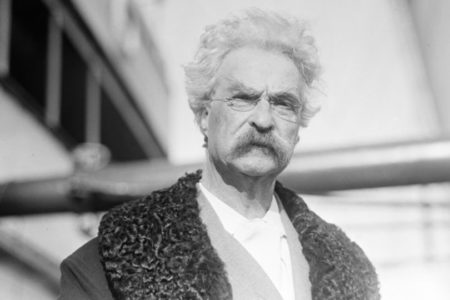For Roses and for Thorns
Each year in November we anticipate the Thanksgiving holiday here in America. A good barometer of how Thanksgiving is viewed can be found by flipping through the television channels. Every show has a Thanksgiving episode where busy individuals prepare frantically for the big day. Love and family are exalted, and everyone has a newfound appreciation for the people in their lives. God, of course, is left out.
With Easter approaching on April 24, retailers are now stocking their shelves with pastel-colored merchandise, stuffed bunnies, and mountains of candy in hopes of cashing in on a holiday when Christians celebrate the resurrection of our Lord and Savior Jesus Christ. Again, God is absent.
So many people today fail to thank the one who “gives to all life, breath, and all things” (Acts 17:25). Yet the Lord tells us in 1 Thessalonians 5:18 that a portion of His will for our lives is to give thanks.
How Things Should Be
Rather than setting a day aside to give thanks, Christians should give thanks every day because our lives are not our own. We were “bought at a price” with “the precious blood of Christ” (1 Cor. 6:20; 1 Pet. 1:19). As believers, we belong to Him, and He works all things for our good. So we can give thanks, not only in times of plenty but also in times of want, struggle, trial, and testing.
George Matheson, a 19th-century Scottish minister and hymn writer who was practically blind at 18, once prayed, “My God, I have never thanked You for my thorn. I have thanked You a thousand times for my roses, but never once for my thorn.”
The apostle Paul was an example of someone who knew how to be grateful:
Not that I speak in regard to need, for I have learned in whatever state I am, to be content: I know how to be abased, and I know how to abound. Everywhere and in all things I have learned both to be full and to be hungry, both to abound and to suffer need. I can do all things through Christ who strengthens me (Phil. 4:11–13).
In 2 Corinthians 4:17, after Paul recapped instances of the suffering he endured, he referred to it all as “light affliction.” Why? Because the presence and power of the Holy Spirit in his life allowed him to experience and express joy and gratitude in the midst of heartache. His personal relationship with the living Lord produced all manner of fruit resulting in praise and thanksgiving.
Many people today search for God’s will as if it were an elusive treasure that He hides from them. Yet He tells us clearly what a portion of His will is for our lives: “In everything give thanks; for this is the will of God in Christ Jesus for you” (1 Th. 5:18).
His will is also tied to the previous two verses: “Rejoice always” and “pray without ceasing” (vv. 16–17). James wrote, “My brethren, count it all joy when you fall into various trials” (Jas. 1:2). We are not to let circumstances determine our heart attitude. Our situations are to have no bearing on whether we have joy that produces heartfelt thanks to God. Practice all three (rejoicing, praying, giving thanks) and you will lead a life characterized by the contentment Paul experienced.
The Flip Side
By contrast, Romans 1:20–21 teaches that unsaved people tend to be characterized by ingratitude to God:
For since the creation of the world His invisible attributes are clearly seen, being understood by the things that are made, even His eternal power and Godhead, so that they are without excuse, because, although they knew God, they did not glorify Him as God, nor were thankful, but became futile in their thoughts, and their foolish hearts were darkened.
Scripture gives a sweeping indictment of the unregenerate by listing some despicable characteristics of their lives (vv. 22–32). Because they refuse to glorify God and thank Him for their very existence, they spiral into sinful indulgence and ungodliness. That’s why it is such a glorious day when people turn to the Lord in repentance, ask for forgiveness, and receive God’s gift of everlasting life (Jn. 3:16, 36).
I think the two attributes that characterize a new believer most are joy and thankfulness. Thankfulness, in fact, is a recurring theme of Scripture. The psalmist wrote, “Enter into His gates with thanksgiving, and into His courts with praise. Be thankful to Him, and bless His name” (Ps. 100:4).
Ephesians 5:3–4 tells us, “But fornication and all uncleanness or covetousness, let it not even be named among you, as is fitting for saints; neither filthiness, nor foolish talking, nor coarse jesting, which are not fitting, but rather giving of thanks.”
Verses 17–20 state,
Therefore do not be unwise, but understand what the will of the Lord is. And do not be drunk with wine, in which is dissipation; but be filled with the Spirit, speaking to one another in psalms and hymns and spiritual songs, singing and making melody in your heart to the Lord, giving thanks always for all things to God the Father in the name of our Lord Jesus Christ.
Doing these things fulfills God’s will for your life. Philippians 4:6 exhorts us, “Be anxious for nothing, but in everything by prayer and supplication, with thanksgiving, let your requests be made known to God.” The result will be a God-given peace that surpasses all understanding and that “will guard your hearts and minds through Christ Jesus” (v. 7).
Colossians 2:6–7 says, “As you therefore have received Christ Jesus the Lord, so walk in Him, rooted and built up in Him and established in the faith, as you have been taught, abounding in it with thanksgiving.”
The Right Perspective
One of my privileges with The Friends of Israel is to meet with many folks who make this ministry possible through their prayers and gifts. My purpose in visiting them is first and foremost to thank them for coming alongside as colaborers. We are so grateful for the many friends who share our mission and vision.
Although it is my intention to thank these people and see how I can minister to them, so often it is I who am ministered to. Not long ago I visited a couple and learned the wife had undergone radical surgery to slow the progression of cancer. She also is undergoing a five-year chemotherapy treatment. Before I left I asked how I could pray for her. She replied, “Just rejoice and give thanks to the Lord with me. I am thankful for each day He gives me; and if those days end, then I will be with Him, which is far better.”
Now that is a perspective only a committed follower of Jesus Christ can enjoy. Only the Spirit of the living God working in a thankful heart can generate such an outlook. If you are looking for God’s will in your life, start by giving thanks in all things. You may be surprised where such an attitude of thankfulness will take you.







